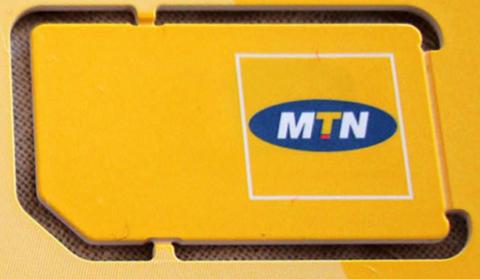
A confidential document obtained from within Nigeria's Communications Commission (NCC) shows that MTN Nigeria, the telecom giant which was fined a massive $5.2bn yesterday, is a serial offender of regulations in the industry, and explains how the staggering figure was arrived at.

The fine, which MTN says it is studying, is a punishment for non-compliance with a deadline set by the NCC to disconnect all non-registered sim cards.
The document explains that the punishment follows a review of the registration records of all the telecom operators,and having taken into consideration their compliance records, the agency imposed a fine on MTN alone for non-compliance on SIM registration.
“The fine of N1,040 billion is in line with Section 19 of the SIM Registration Regulations specifying N200,000 per unregistered SIM and the penalty has been applied for the 5.2m MTN SIM card registration records found to be non-compliant by the NCC,” the document says. “This unprecedented fine is indicative of the magnitude of the transgression and the seriousness with which the NCC and the authorities are approaching this issue. It is also more likely to ensure that the wilful non-compliance by MTN ceases.”
The document shows that as far back as May 2010, all local telecommunications operators were required to commence the collection of biometric and non-biometric personal information for each new subscriber in an effort to improve information gathering towards enhancing national security. The initiative was at the instance of the Office of the National Security Adviser in collaboration with other security agencies and the NCC.
The SIM Registration Regulations came into force on November 7, 2011, and exactly two years later, operators were directed to fully bar any newly registered SIM card which failed to perform a voice or data communication within 48 hours of its registration.
The document shows that the NCC and security agencies conducted a compliance audit on all operators in August this year following expiry of the deadline of August 11, for deactivation of improperly registered SIM cards.
“The NCC disclosed, at Press Conference on August 17, 2015, that despite sharing a list of invalid registration details with operators, MTN had made little or no effort towards compliance with the deactivation directive whilst other operators had largely complied.”
The document further shows that last month, an unprecedented high level meeting chaired by the Chief of Staff was called at the presidential villa, bringing the telecom CEOs face-to-face with the heads of the main security agencies and the NCC, for the purpose of emphasizing compliance with the deactivation directive.
“The Chief of Staff implored operators to take the matter seriously noting that (i) security and safety of the people is No. 1 on the president agenda; (ii) 70% of kidnappings, violent crimes and insurgence are facilitated using unregistered SIM cards making it impossible to trace the perpetrators; (iii) government supports the private sector but companies must operate within the law; (iv) in other countries heavy fines are levied on the private sector for non-compliance (e.g. JP Morgan’s $20bn fine),” it said.
“It was also agreed that (i) operators were to immediately reconcile the records of their deactivations against the list of invalid registrations earlier shared with operators by the NCC by September 7, 2015; and (ii) a penalty of N200, 000 per unregistered / poorly registered SIM would be imposed as stipulated in the SIM Registration Regulations 2011.”
The document notes that despite all of those efforts, MTN failed to comply with the directive to deactivate improperly registered subscribers.
“The NCC and security agencies informed the public during a press conference held on August 18, 2015, that, as at the expiration of the 7-day deactivation deadline ending on August 11, 2015, MTN had failed to fully deactivate any subscriber,” and following repeated warnings and compliance enforcement visits by the responsible authorities only made a partial attempt to bar unregistered subscribers in selected areas over a few days in September 2015. Other operators had fully complied and reconciled their deactivations with the invalid registrations shared by the NCC up to 4 weeks earlier.
“The consequence of MTNs refusal to comply with the directive is even more pronounced as fully half of all the invalid registrations shared by the NCC belonged to MTN,” the document shows. “These SIM cards with invalid registrations pose a grave security risk to the country as their registration information cannot be used to successfully identify their owners in the event of a security issue involving any of these SIM cards. The recent kidnapping of the former finance minister Chief Olu Falae is one example of this risk; the kidnappers used MTN SIM cards and MTN was unable to provide any registration data for those SIMs.”
The document further reveals that MTN’s non-compliance with the deactivation directive, rather than being an isolated incident, must be seen as part of a general pattern of non-compliance, with regulatory directives that actually predates the current SIM registration infractions. It cites many examples of violations and non-compliance, beginning in November 2012, to buttress this point.
“As it stands today MTN’s persistent violations have forced the NCC to impose the unprecedented sanction of suspending all regulatory services to MTN following its accumulation of over 28 separate and proven infractions,” it says.